The Keto Diet For Women: What You Should Know Before Starting
Is a Keto Diet harder if you’re a woman? And is it only safe for men?
The answer to both questions is no!
You can still do Keto safely if you’re a woman and you don’t have to struggle with it.
There are a few safety concerns you might have when it comes to Keto: “But don’t I need carbs to function? Will the diet mess up my hormones?”
And we’ll be going through them all one by one in this article.
There are also a few ways you can make the diet easier for yourself if you’re a woman – and we don’t mean with “cheat days” or a “less good” version of the diet.
So we’ll also be sharing a few tips and strategies for you to use – so you can have your keto-friendly cake and eat it, too.
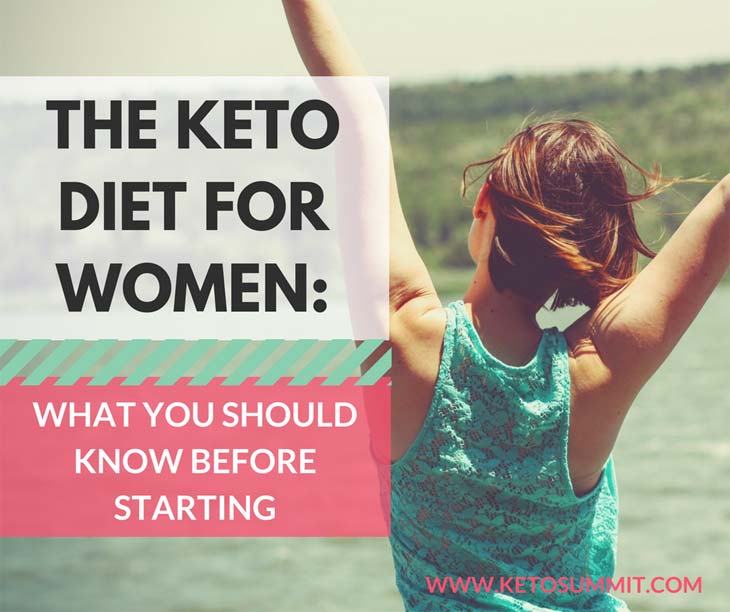
Is the Keto Diet safe?
Many women are worried that Keto can be unsafe when they first hear about how the diet works.
Most of us are used to including carbohydrates in every meal and cutting out fat where we can. But the Keto diet flips takes this traditional way of eating and flips it completely on its head! Listen here as Daisy Brachenhall tells us how to be a Keto Woman!
Which means there are a couple of questions that usually come up:
1. Doesn’t my body need carbohydrates to function?
The fact is, our bodies can function perfectly well without carbohydrates. As long as we’re eating plenty of healthy fats and protein!
There’s really no biological requirement for having carbohydrates in our diet. And that doesn’t mean carbs are “bad” or the “enemy”. It just means they’re not essential.
If you dig into the science a little bit, you’ll find that our brains do need some glucose to function…
Your brain needs roughly 100-120 grams of glucose per day or around 20% of your body’s total energy needs.
Does that mean you need to eat carbs? Not necessarily!
We usually get our glucose from eating carbohydrates/sugars – but that’s not the only way your body can get the glucose it needs.
Our bodies can actually make glucose from protein and fat – they break the fat down into ketones and use the ketones as fuel for your cells.
How, exactly? By converting the ketones into the substrate for the energy-producing Krebs Cycle – there’s a more detailed explanation by Peter Attia here, for any science fans.
So the key takeaway is, your body does NOT need you to eat carbohydrates so it can function.
2. Isn’t eating that much fat bad for your health?
We’ve all heard that eating lots of fat is bad for us. For example, high-fat diets are thought to increase your risk of heart disease.
Since the Keto Diet is high-fat, you might think that makes it unhealthy… but that isn’t true!
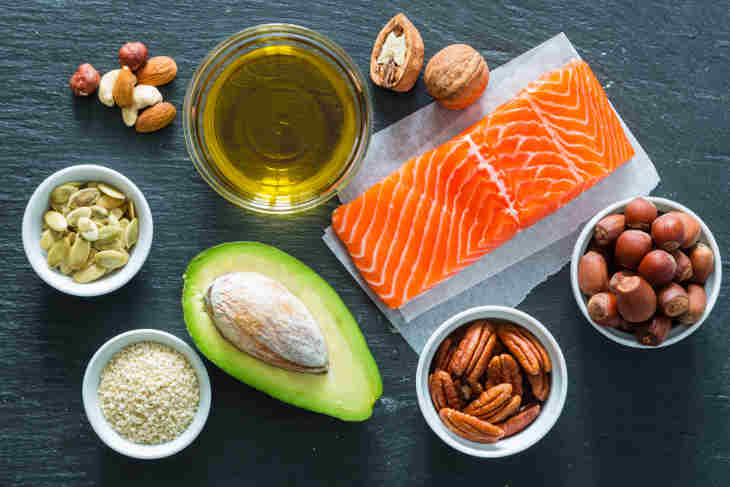
That’s because the type of fat you eat is important:
- If you’re doing the Keto Diet in a healthy way, you’ll be eating good fats from foods like avocados, grass-fed ghee, and olive oil.
- And you’ll be avoiding unhealthy fats, from hydrogenated oils and processed vegetable oils.
In fact, the Keto Diet can reduce your risk of heart disease – by lowering your triglyceride levels, decreasing your levels of bad cholesterol and increasing your levels of good cholesterol.
And it has other health benefits, too. You can read more about those other benefits of keto here.
Does the Keto Diet affect your hormones?
This is another big concern, and there’s more good news: the keto diet itself doesn’t have a negative impact on your hormones.
But you might have heard/read differently on other sites and forums…
In fact, there are three main hormone-related health problems which the Keto diet is accused of causing. So we’re going to debunk all four, one by one!
Myth #1: The Keto diet causes thyroid problems
There are three hormones you need to know about when it comes to your thyroid:
- T3 (triiodothyronine) is the active form of thyroid hormone, and it plays an important role in regulating your metabolism. (1)
- T4 (thyroxine) is what gets produced by your thyroid glands. It’s then converted into T3 in the organs and tissues.
- Then you also have TSH, which is a thyroid stimulating hormone. This hormone is produced by the pituitary gland, and it tells your thyroid glands to produce T4.
And there’s a big misconception that a Keto diet will “mess up” your levels of these hormones, causing hypothyroidism (or other thyroid-related problems).
Is this true? The evidence would suggest not.
There are research studies which show a Keto diet doesn’t negatively impact thyroid function:
- A study following adults on a low-carb high-fat diet (similar to Keto) found that their T4 levels remained normal and they lost weight. Which is a good indicator of a correctly functioning thyroid! (2).
- Another study compared the temperature regulation of folks on a low-carb high-fat diet with folks on a high-carb low-fat diet. They were exposed to cold temperatures after eating. The folks on a high-fat diet showed a smaller decrease in body temperature. And since your thyroid regulates body temperature, this is a good sign their thyroids were functioning correctly. (3).
Any thyroid disruption you experience could be down to other factors (not the Keto diet):
- Reducing calorie intake too much can disrupt your thyroid activity. It lowers your levels of T3.
- Weight loss (of any kind, caused by any diet) can also affect your thyroid levels. It reduces the amount of T4 your body converts into T3.
- Overtraining can stress your body in a way which disrupts your thyroid function. It causes your body to convert T4 into reverse T3.
So if your thyroid panel is disrupted, it could actually be for one of these three reasons!
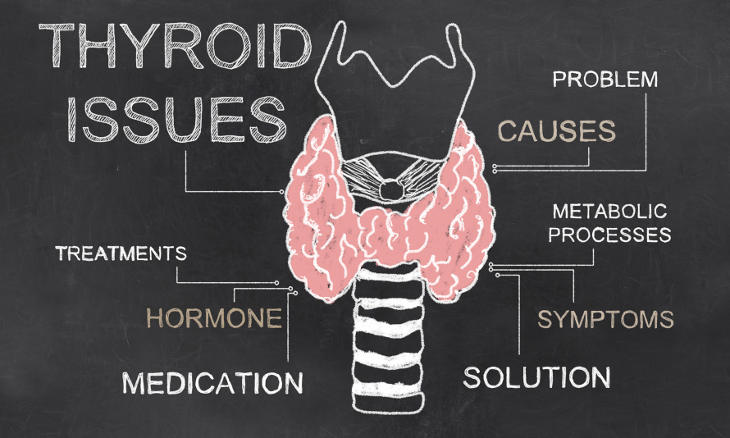
Lastly, it’s important to note that a Keto diet can lower your levels of T3 without disturbing the normal function of your thyroid gland:
If you’re eating lots of carbs then you need higher T3 levels to deal with all the glucose.
But when you eat significantly fewer carbs, your body doesn’t need to process as much glucose. And so it doesn’t produce as much T3.
As a result, you’ll see a drop in your T3 levels. But that’s not a bad thing – it just means your body has adapted.
Your body is still producing the right amount of T3 to process the amount of carbohydrates in your diet. So your thyroid should still be functioning correctly, even if your T3 levels are lower!
The main thing to be careful about is making sure you’re not eating too few calories for a long time.
Myth #2: The Keto diet causes adrenal fatigue
Nowadays, adrenal fatigue is better known as HPA Axis dysfunction. And it is NOT caused by the Keto Diet.
Your HPA Axis is a set of three glands in your body – the hypothalamus, which secretes hormones, and communicates with the pituitary and adrenal glands.
HPA Axis dysfunction is caused by chronic stress.
And that stress can be emotional (e.g. from a challenging job or relationship problems) or physical (e.g. calorie restriction or over-exercising).
There’s a more in-depth explanation by Dr. Becky Campbell here.
But could the Keto diet also cause HPA Axis dysfunction?
Here are the conclusions of the experts we asked…
- Sports physician Dr. Anthony Gustin says: “Ketosis acts on the hypothalamus in a completely different way than a non-ketogenic diet, with no conclusive data regarding reduction in hormonal activity in the HPA axis (adrenal fatigue)”
- Dr. Tommy Wood, M.D., PhD points out: “Much of the data used to support the idea that the ketogenic diet causes thyroid/adrenal issues come from studies where people are in a calorie deficit. If you’re on a ketogenic diet and eating enough calories, then this problem often goes away.”
- And Ketogains founder Luis Villasenor notes that: “HPA Axis Dysfunction symptoms are usually, believe or not, mostly due electrolyte imbalance – once people adjust their electrolyte intake when doing keto, the symptoms should subside.”
The bottom line is: The Keto Diet is NOT responsible for causing HPA axis dysfunction – there isn’t sufficient evidence to back up that belief. And in some cases, the Keto diet is wrongly blamed when other factors are responsible!
Some experts believe that Keto may even help heal HPA Axis dysfunction.
Dr. Daniel Pompa, PSc.D stated: “Once the cell, the mitochondria, becomes an efficient fat burner, there’s frankly less stress because you’re not getting the glucose rises and the glucose drops.”
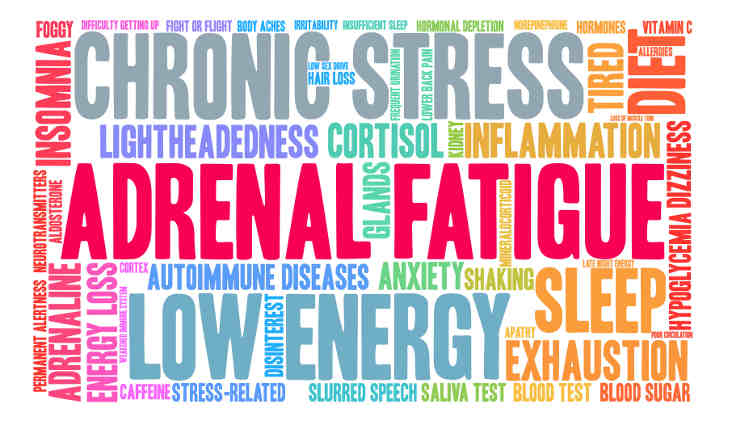
Myth #3: The Keto diet causes elevated cortisol levels
We all know cortisol as “the stress hormone” – and there’s a myth that the Keto stresses out your body and elevates your cortisol levels.
But cortisol is produced by your adrenal glands, which are part of the HPA axis. And we already know that the Keto Diet doesn’t negatively affect the HPA axis (and may even improve it!)
But your cortisol levels will be elevated by things like calorie restriction and over-exercising – so if you’re making other lifestyle changes at the same time as doing a Keto diet, make sure you’re still eating enough and not pushing your body too hard. (4, 5)
Myth #4: The Keto diet will mess up your menstrual cycle
Most women experience a normal cycle on the Keto Diet – sadly, Keto won’t be a magic fix for your PMS cravings or bloating.
Some women temporarily see changes in their cycle when they first start a Keto diet. Their period may be lighter, heavier or more/less frequent. There’s an entire reddit thread dedicated to discussing these experiences.
That’s because estrogen – one of the hormones which regulate the menstrual cycle – is stored and produced by your body fat. And on a Keto diet, you start burning this fat which releases some of this stored estrogen which.
As you become keto-adapted, your body learns to compensate for this – and things return to normal!
Can you do Keto while breastfeeding?
This is a tough question to answer – not much research has been done on this topic. But the answer appears to be “Yes, you can”.
A study in 2009 followed breastfeeding mothers while they were on different diets. (6)
First, they followed a high-carbohydrate, low-fat diet and then they followed a low-carbohydrate, high-fat diet (similar to Keto).
The researchers found that…
-
- Diet didn’t affect how much breast milk the mothers produced each day or how much milk the babies ate. It also didn’t affect how much lactose or protein the milk contained.
- However, the milk the mothers produced during the low-carb, high-fat diet was higher in energy and had a greater fat content. And that’s why the daily energy intake of the babies was higher during this diet.
- The daily energy output of the mothers was higher during the low-carb high-fat diet aka there was a negative energy balance – which is what most ladies try to create in order to lose weight.
This is only one, very small, study so it’s by no means conclusive evidence. But it does seem to suggest that breastfeeding on low carb diets can be safe.
Some Keto doctors, like Dr. Andreas Eenfeldt, MD recommend women eat “at least 50 grams [of carbs] per day while breastfeeding” just to be on the safe side and avoid any potential complications.
A great way to add in those extra carbs is by eating some fruits or starchy vegetables. It’ll boost your vitamin and mineral intake as well rather than just giving you empty carbs.
And remember to always check with your doctor first, too – just to be sure!
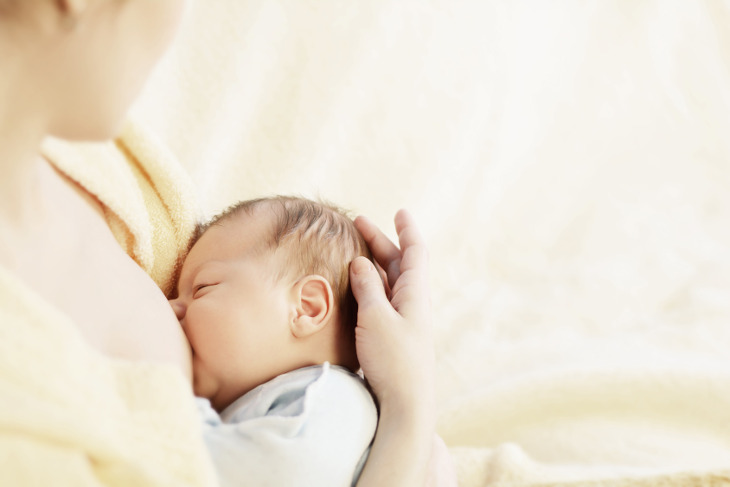
Keto For Women – Our Top 6 Tips
There are a few tips and tricks you can use to make doing a Keto diet easier…
1. Track your calories
It’s all too easy to undereat after you remove carbs from your diet – especially since we’re used to avoiding fatty foods like bacon, which can help to boost your calories on Keto and keep your full for longer.
By tracking your calories, you’ll be able to keep an eye on how much you are (or aren’t) eating each day. And that will help you avoid symptoms like exhaustion, which come with not eating enough.
2. Avoid a diet mentality
Don’t think about Keto in terms of diet, deprivation, restriction, and good vs “cheat” days.
Think of Keto as a positive and powerful change you’re choosing to make for your health. It’s a small mindset shift, but it can make a big difference! More on mindset with Kate here!
3. Find healthy ways to meet your PMS cravings
When that time of the month comes around, you might start feeling hungrier than normal or craving sweets.
If you’re hungry, eat! And if you’re craving sweets opt for homemade keto brownies or ginger coconut cookies or a few squares of dark chocolate.
4. Don’t weigh/measure yourself during menstruation
You started your Keto Diet to help you lose a little weight, and everything was going well…until you suddenly gained it all back, seemingly overnight.
Getting bloated and gaining water weight around the time of your period is normal. And it can still happen when you’re on a Keto Diet, so don’t let it discourage you.
5. Build a support network around you
Making any type of change to your lifestyle or diet can be stressful. And if you’re the one doing all the cooking at home, then it can really help to get your family’s support.
Tell them how important going Keto is for you. Explain that you’re doing this for your long-term health and well-being and that you’d love their help and support as you switch to Keto.
And if you can, get support from friends or join a Keto Facebook group online. This will help you get through the tough days.
6. Take your supplements!
Even if you’re eating a healthy diet – whether that’s Keto, Paleo or anything else – it can be hard to get all the nutrients you need.
That’s why you should take supplements like probiotics, prebiotic fiber, magnesium, and others. There’s a full list of recommended Keto supplements here.
Do you need more carbs as a woman on Keto?
There’ve been a lot of debate about what the best amount of carbs to eat is! And there’s no exact answer, unfortunately.
So, here are some guidelines for determining if you might need to add in more carbs to your diet or reduce them.
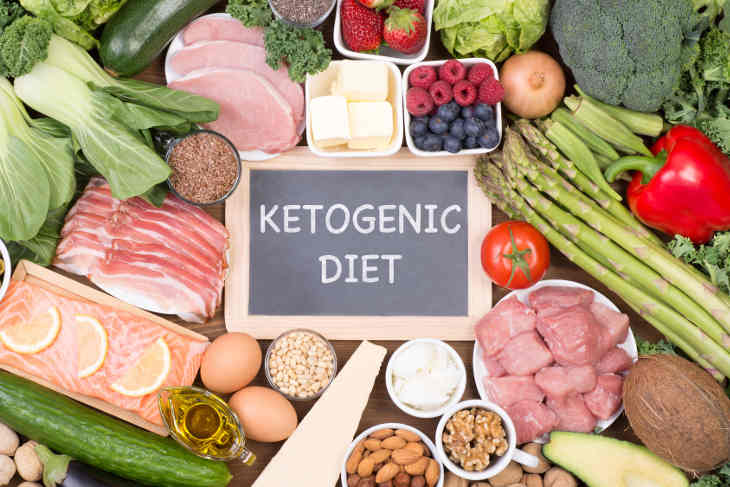
It can be easy to make up excuses for eating a cookie…be aware that your sugar cravings could be persuading you to eat more carbs than you actually need. So take the time to actually figure out what your body needs.
Do you need to eat MORE carbs?
The truth is, in most cases, you won’t need to increase your carb intake.
If you’re finding your workouts (and recovering from them) a lot harder than before, then there’s something to be said for eating some form of carbohydrate after you exercise. (Here’s a great podcast with Certified Personal Trainer Tanya Willis about how exercise can enhance your keto diet!)
This only applies to high-intensity exercise though! It’s a form of the Keto diet called the Targeted Ketogenic Diet.
Other signs which may make you think you need more carbs – like bad breath, feeling fatigued or cranky, and having an upset tummy – are actually signs you’re doing the Keto diet correctly!
You can make them disappear by…
- Increasing your fiber intake
- Drinking bone broth (to hydrate you and top up your electrolyte levels)
- Getting enough rest
- And adding more nutrient-dense foods to your diet
…NOT by eating more carbs! There’s a great discussion of this topic by Mark Sisson, here.
Do you need to eat LESS carbs?
If you feel like your Keto diet just “isn’t working,” then that could be a good sign that you need less carbs.
Here’s how to know for sure: measure your ketone levels and track your carb intake.
How to measure your ketone levels:
You can do this in a few different ways – using urine test strips, a breath ketone meter, or a blood ketone meter.
- If you’re aiming for weight loss or improved athletic performance, your ketone levels should be above 0.5 mmol/L.
- If you’re aiming for improved mental performance (like increased focus and a greater ability to concentrate), then you’ll need ketone levels in the range of 1.5 – 3 mmol/L.
There’s a more in-depth article you can read on optimal ketone levels and how to measure them if you’re looking for more information.
And if your ketone levels aren’t in the range you’d like them to be, then carbs are the culprit and you’ll need to decrease your carb intake!
How to track your carb intake:
For most people, net carbs are what’s important to track. This is your total carb intake minus the fiber. (Fiber is actually useful on Keto, plus it’s great for your gut health.)
Use an app like MyFitnessPal or Senza to track what you eat every day. Keep an eye on your net carbs and make sure it’s not going over 20-25 g per day.
Track your ketone levels at the same time and see the correlation. This will give you way more data to determine how best to optimize your Keto diet.
![]()
Keto Doesn’t Need To Be Harder If You’re A Woman!
Keto can seem tougher when you’re a woman. Your husband might be able to drop the weight faster and they seem to be able to eat the same bacon and eggs for every single meal without a single complaint. All the while, you have to deal with your body and hormones changing.
Just remember to take it easy. It’s not a competition. This is a journey to improve how you look and how you feel. Eating well and taking care of your body and mind is a life-long journey. So, start it today and take it one step at a time.
For a plan to get started on Keto, check out our Keto beginner’s guide here and check out our Keto meal plans here to make eating on Keto fun, full of variety, and effortless.
Pinterest Image For The Keto Diet For Women: What You Should Know Before Starting
Please pin the image below so that you and others can quickly and easily refer to the list and find out why and how the Keto diet is perfectly fine for ladies and get to know some important things before starting your Keto journey.

